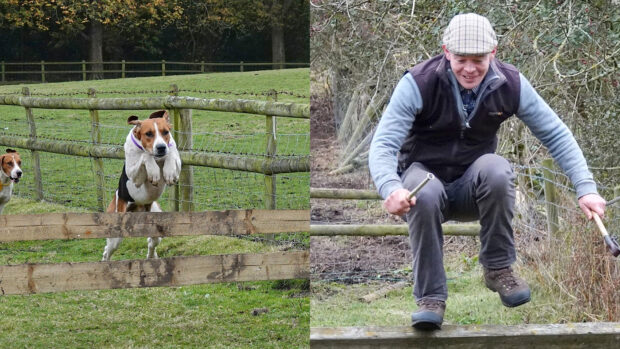It was a picture which will have confused most of the British public, and infuriated the prejudiced minority of Labour politicians who had a lasting obsession with hunting: this weekend, nine months after the Hunting Act came into force, hundreds of thousands of supporters joined more than 300 hunts across England and Wales for their opening meets on Saturday.
“The Hunting Act doesn’t ban red coats; it doesn’t ban hounds, horses or supporters, it doesn’t even ban killing foxes,” has been a regular refrain during the summer, but few would have expected to see increased support for hunts at the beginning of the first full post-ban season.
The message was clear – determination to retain the infrastructure of hunts and hunting, and to prove beyond all doubt that the Hunting Act will not stand the test of time.
“We are going out to hunt within the law, to test and ridicule this badly-drafted and prejudiced piece of legislation,” was the message from hunt masters throughout the weekend.
However, there is still a good deal of confusion amongst the hunters themselves. One mounted follower on Saturday was aghast to discover that her whippet’s love of squirrel hunting has been an illicit pleasure since 18 February.
The police and the Crown Prosecution Service have been turning a blind eye to this kind of “domestic” law-breaking, but even as far as hunting itself is concerned, have so far dismissed the 30-something allegations made by anti-hunt vigilantes against hunts.
The League Against Cruel Sports used this weekend to launch its report ‘Hunting – the Status Quo’ in which it claims that ‘40% of hunts appear to be breaking the law,’ although they fail to refer to a single specific incident of law breaking, still less actually prove it.
The Hunting Act has served not only to highlight the resilience and defiance of Britain’s rural community against an attack on its way of life, but has also elicited continuing uproar from the more liberal members of society, sick of a ban-happy Government.
There is a general feeling of disgust that the Government spent so long legislating on such a trivial issue to achieve little. Less than half of public opinion now supports a ban, and even fewer consider that hunting should be dealt with by the police as any kind of priority.
And even if over-stretched, under-funded rural police forces did have the resources to enforce a law which is as clear as a bag of smoke, there is little agreement among lawyers as to what is, or isn’t technically legal or illegal under the Hunting Act.
“Ultimately, it will be up to the courts to decide”, said Brian Hughes, Master of the Llangeinor Hunt in South Wales, on Saturday.
“One thing is clear about this law: no-one is happy with it, and Tony Blair and his Government will be rueing the day they succumbed to the spiteful whim of their backbenchers, instead of listening to the voice of the rural community, vets and other experts, and legislating on the basis of principle and evidence,” he added.



